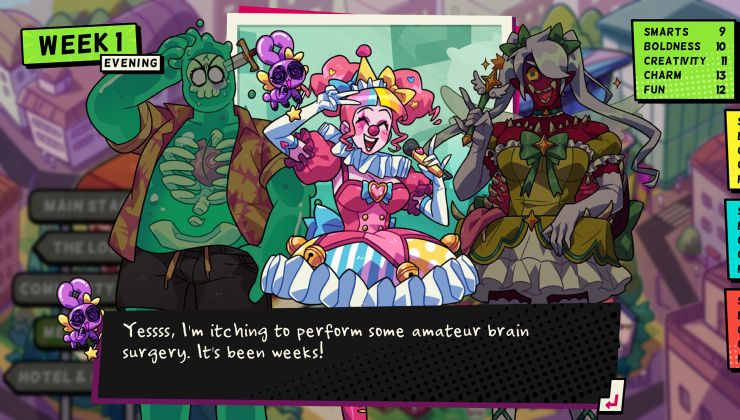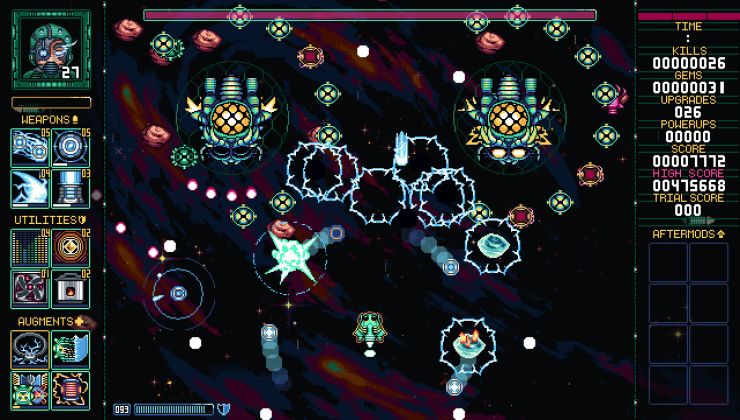There comes a time when everyone has to sit and think about what they use on their PC, especially if you're on Linux. For me, Arch Linux (via EndeavourOS) just wasn't working out any more and so I've moved to Fedora.
While I was reasonably happy with Arch Linux, it's just not stable enough for me personally. It's a very subjective thing of course, and highly dependent on what hardware you use — along with how often you update. For me, it just messed things up a bit too often, and last night was the final straw.
I updated either that day, or the day before, and just before a livestream was due to start, my SteelSeries headset no longer worked. No matter what I tried, following guide after guide about PipeWire, nothing helped. Just this weird and very quiet electrical static noise whenever I tried piping audio to it. Eventually it worked again by some downgrading, plus random hotplugging and testing it on a Windows machine for a sanity check and it started somewhat working again. My Microphone was another issue, at the same time it decided to be ridiculously quiet for no apparent reason I could see so there were wider problems. I had enough, I had work to do and after hours of hair-pulling — hello from Fedora.
Thankfully, with the likes of Flathub / Flatpak packages and how far along apps like Discover have come along for installing packages and setting things up, there's not a whole lot to learn. It's been a very long time since I used Fedora, and it was one of my first Linux distributions I tried sticking with back when it was "Fedora Core" and wow — it's always surprising to see how far we've come as a platform for doing anything.
Fedora does come with some of its own issues, like NVIDIA drivers being a nuisance to install, which they definitely should improve. If other distributions can do one-click or one-line installs, I'm sure they could do it too. However, it's just another point towards me swapping to AMD when prices settle, or perhaps Intel when Arc properly launches for desktop. I also need to figure out why Dropbox won't load on startup, some little things like that.
Anyway, are you really a Linux nerd if you don't distro-hop at least once a year? Jokes aside, I look forward to seeing why people keep recommending Fedora nowadays as a stable distribution, let's see how long it takes me to break it.
Huh, so it's like the one I used for Arch, wish it showed up in my Googling <_<Fedora does come with some of its own issues, like NVIDIA drivers being a nuisance to install, which they definitely should improve. If other distributions can do one-click or one-line installs, I'm sure they could do it too.I like to install the NVIDIA driver using this it is still not an official support from fedora but it is the fastest way on fedora also note that the devs says that it's Only tested on 9XX/10XX/20XX/30XX series discrete NVIDIA cards.
[Rawhide no debug kernel for those interested. ](https://fedoraproject.org/wiki/RawhideKernelNodebug)
The fedora upgrade cycle has been rock solid for me, even to beta releases.
Last edited by drlamb on 8 Apr 2022 at 1:34 pm UTC
The only issue I've had recently was switching from NVIDIA to AMD - which was mostly due to unfamiliarity with the modern Vulkan setup - and an occasional bug with Flatpak where xdg-desktop-portal starts a memory-leak massacre of my system (so, I'm not sold on Flatpak yet).
I would definitely not recommend such a setup for the average user though, but for me, it's more stable than a standard Fedora or Pop!_OS install.
Somewhere I followed a wrong command, didn't pay enough attention, stuff got removed that shouldn't and it all died. It was a learning experience to be sure and I've rarely compiled anything since :P. Flathub all the way.Liam: i leave systemD for systemDLiam has in the past nuked his system by compiling OBS and you suggest he use Gentoo? Pretty bold, if you ask me. :P
Oh come on liam join gentoo we have cookies
I have to hear that story
I think Linus from tech tips tried Pop OS , tried to install a new DE and managed to remove the display manager by mistake so no desktop showed up anymore.
I’m happier with my 5 years gaming on Manjaro than anything before.
Could be Manjaro or simply a better Linux experience, or my better understanding, but still, i don’t see me changing for now.
Before that i was often on Ubuntu and Mint, and also tried many others, and when i landed on Manjaro i felt stable and good enough with rolling release.
I think the secret is to know what to expect, you gotta work with them, it's a team. Yes, you can try new things (Pipewire), but don't blame it on your distro if that new thing doesn't work... I haven't tried it because I want to wait until it's much more stable. My distro is more important than a Pipewire adventure!
In the meantime, I just cook something nice, put on my comfy clothes, relaxing music and enjoy my time with my beloved Manjaro, :)
Last edited by ertuqueque on 8 Apr 2022 at 8:04 pm UTC
I recently moved to Fedora myself and I’m now a fan. Ubuntu doesn’t do it for me any more and the Manjaro I was also using was just too much hassle.
What issues did you have with Manjaro? I just started using it myself, because the CPU I bought was supported by the live USB install for Manjaro, but not Mint (which is what I used to use).
I like that the rolling release won't have a "fresh upgrade" scenario -- my wife hates when we have to do those to her laptop.
We like the XFCE desktop.
But, I do like stability and the ability to easily run/install NVidia proprietary drivers and to have my USB scanner, USB printer, and CD/DVD work out of box. In the past, the latter were all an issue with Debian -- which I otherwise liked.
I use RHEL at work, with AlmaLinux for Docker containers. I don't care for what RHEL did to CentOS, so Fedora is kind of tainted by that, plus they don't seem to have an official XFCE version with minimal install. (I don't want LibreOffice, as we pay for SoftMaker's office suite -- it works better for my wife's writing.)
And it needs to support the Alder Lake (newest Intel) CPUs out of the box.
In my experience, Arch is really stable for a rolling distro (although I'd like pacman to be a bit more robust, but it's generally good enough). However, it explicitly requires regular maintenance efforts, and not everyone is willing (or able) to do that.
Which is fine, there are different distributions for people with different needs.
I had like... one manual update action required when systemd started integrating homed because of my ldap logins across years of using arch...
Sometimes I really wonder what people do with their pcs :P
I consider other distros as more of those with "special interests" (for example a distro primed for audio work, or minimal footprint, or headless, or low hardware reqs or whatever) or for those who simply want to explore. Of whom neither is any of bad or negative motivation at all.
But if you're not one of those, I'd say "go Ubuntu".
I think the secret is to know what to expect, you gotta work with them, it's a team. Yes, you can try new things (Pipewire), but don't blame it on your distro if that new thing doesn't work... I haven't tried it because I want to wait until it's much more stable. My distro is more important than a Pipewire adventure!There is also a difference in philosophy at play here. I was on EndeavourOS until around the end of last year and I was using Pipewire as well at the time. Pipewire released a version with a regression, which was identified and patched but the patch only made it to the next release. During that time Endeavour (or rather, Arch) carried a flawed version of Pipewire because they generally don't patch software themselves. When I switched to Fedora Silverblue, they used the same version of Pipewire except they carried a patch to fix the regression.
So, in this case there's a different trade-off at play here than just "software X is new and experimental". Fedora commits more to keeping a functional configuration and they'll try their best to also apply system configuration changes over releases, whereas on Arch your config files might eventually just drift out of date and you'll need to manage your .pacnews in order to keep your system working correctly.
There's of course arguments to be made here one way or the other. You could argue that it's not Arch's responsibility to manage your configs for you or patch the software in their repos. Maybe Pipewire should do more minor releases to fix issues quickly upstream. But on the other hand, some people just want a system that works and preferably keeps working.
After years of distrohopping I stopped at MX linux (Debian based, no systemd).
Still have bad memories of those Fedora core experiments days. But truly believe they (Red Hat and co.) have made palpable progress ever since.
Anyway personally (with Artix as my 2nd driver now) still consider MX project as a greatly balanced one.
Hello from Kiev Ukraine
No pasarán
We run MX Linux on the fanless box we use for our "TV". I like it in a lot of ways, but the multiple sources for installs feels weird and some of the GUI stuff is clunky (possibly from lack of familiarity).
rebooting several times since it just didn't install all packages downloadedare you sure you arent mistaking it with windows by accident?
In my experience, as long as one stays away from the bells-n-whistles DEs like Gnome/KDE/Plasma, it's extremely rare for things to break on Arch.
The only thing i had breaking in the year or so i'm using arch now was a pipewire bug with audio-devices that promote multiple sinks (in my case my Astro A50 with its game- and chat- sink). KDE (and the rest of Arch) has been rock solid for me, even more so than Manjaro ^^
Now about 3 years have passed and I'm still on KDE even though I still wished to go back to Gnome. If I'm to lazy to switch DEs, I certainly won't switch distros without a proper reason :)
Also, I would never go back to a stable distro. Rolling Release has proven way less problematic for me. At least on devices I regularly use.
Last edited by const on 8 Apr 2022 at 2:37 pm UTC
How ironic,
Pipewire (apparently broken in Arch, which uses default upstream configs) has been created by Wim Taymans, Principal Engineer at Red Hat which in turns sponsors Fedora :)
Could be a big play to get more users.







 8 Apr 2022
8 Apr 2022






 How to set, change and reset your SteamOS / Steam Deck desktop sudo password
How to set, change and reset your SteamOS / Steam Deck desktop sudo password How to set up Decky Loader on Steam Deck / SteamOS for easy plugins
How to set up Decky Loader on Steam Deck / SteamOS for easy plugins
See more from me